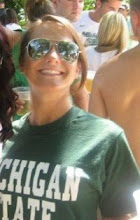Over the years, I have worked diligently to do what needs to be done in order to become a “good” teacher, and throughout this process, there have been numerous times, no…thousands of times, that I have felt completely overwhelmed, stressed, anxious, nervous, and entirely apathetic in regards to my future career as an elementary school teacher. I know that may sound awful to some of you, but, honestly, it is HARD. However, there are moments throughout my days, weeks, and months, in which I feel like “hey…I can do this, and I can be GOOD at this!” While those moments may be few and far between, they are so consuming and all encompassing, that it makes up for those times where I feel terrified! Well…after reading Sylvester’s article, I had one of those feel good moments.
For the hour or so it took me to read Sylvester’s article, I was able to visualize a teacher…a man…a mentor, who cared so much about his students, that he travelled the extra mile that teachers don’t often travel. He challenged himself and his students to question and voice their thoughts and opinions through the execution of a classroom economy: “Sweet Cakes Town”. But this wasn’t just some week long project he implemented and then discarded. “Sweet Cakes Town” was a year-long process of observing, analyzing, questioning, and experiencing. Sylvester’s students had the opportunity to learn important school subjects, such as: economics, social studies, geography, and math, through the utilization of “Sweet Cakes Town”. Those subjects were transformed from being static and boring, to being applicable, meaningful, and relatable.
This is a picture of two students interacting as a banker and the customer.
These two consumers are shopping for goods.
One specific aspect of Sylvester’s “Sweet Cakes Town” that I found particularly moving was the level of involvement between the outside community and the classroom. The students were able to communicate and collaborate with the members of their community; such as; Ziggie (the owner of “Ziggie’s Barbeque Pit”), the town major, lawyers, etc. I thought that was so AWESOME. Specifically, on page 315 of Sylvester’s article, he states “After a few months of learning from people in the neighborhood, students wrote nominations for neighborhood citizenship awards…We invited those people, as well as all those whom we had interviewed in our study, to come to the classroom and receive awards for their contributions.” That brought tears to my eyes…just imagine how PROUD those children and community members must have felt that day.
As I said before, this article sincerely inspired me. I would love to put Sylvester’s idea into practice. As a student myself, I can read that article and be inspired, motivated, and excited…but also, as a future teacher, I can read this article and understand and appreciate the amount of hard work, energy, and time, that goes into implementing this into a classroom curriculum. My goal as a teacher is to not shy away from that hard work and time…










I think this is so very cool! It takes a lot to do something so creative, but it is so well worth it! I think it's important that teachers steer away from "safe" activities and venture out a bit in order to really impact the students lives in teaching.
ReplyDeleteI personally love the idea of teaching those kids in 5th grade these kind of things. These kind of teachers are what we need for our children to learn more than the things they read in their books.
ReplyDeleteI read that article also, it was amazing. I think that that type of teaching and learning is really what school is about.
ReplyDelete